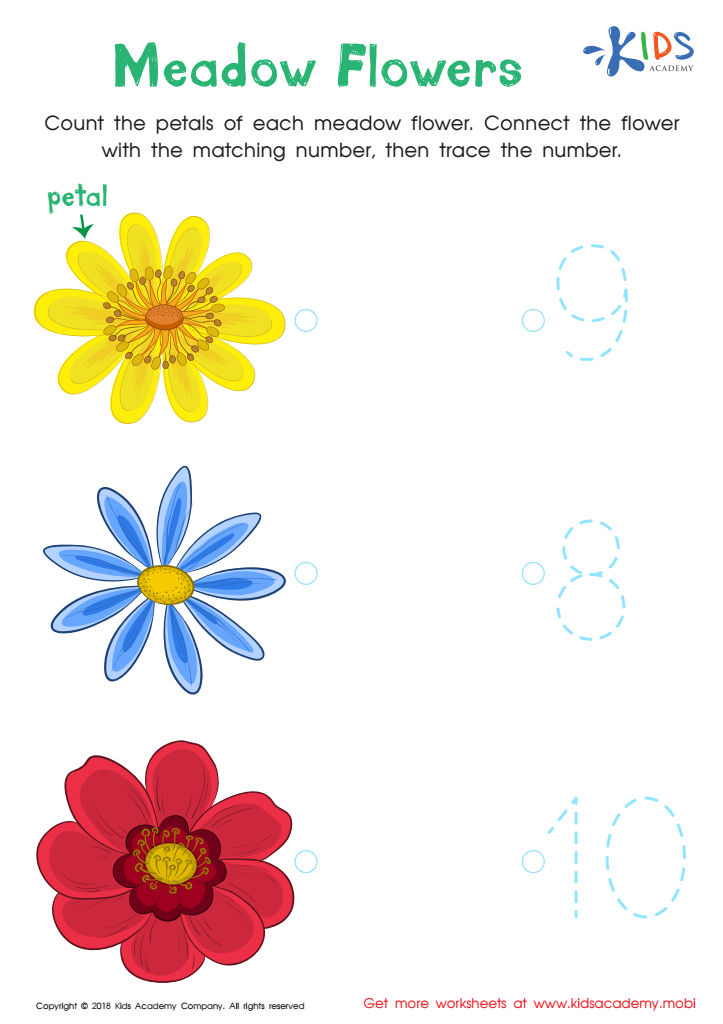Tracing worksheets activities for Ages 4-5 - Page 7
145 filtered results
-
From - To


Kindergarten Number Tracing: Medow Flowers Worksheet
Tracing worksheets activities are an invaluable tool in both educational and developmental contexts, offering a multitude of benefits that span across different age groups and learning stages. These activities are not only fundamental in the early years for pre-writing skills but also beneficial for fine motor development, cognitive skills, and even therapeutic applications.
First and foremost, tracing worksheets activities are crucial in enhancing fine motor skills. The precise movements required to follow lines or shapes help children develop control over their writing instruments, laying the groundwork for successful handwriting. By engaging in these exercises, learners gradually improve their grip, hand strength, and coordination, which are essential for tasks beyond writing, including typing and other manual skills.
Moreover, tracing worksheets activities serve as an excellent introduction to the alphabet and numbers. Through repetitive practice, children become familiar with the shapes and names of letters and numbers, fostering early literacy and numeracy skills. This familiarity helps ease the transition into more complex writing and mathematical tasks, making the learning process smoother and more enjoyable.
Cognitive development is another significant benefit of tracing worksheets activities. These tasks require concentration, pattern recognition, and memory, which are vital cognitive skills. As children follow the lines and shapes, they learn to focus their attention, recognize patterns, and remember specific strokes, thereby enhancing their overall cognitive abilities.
Additionally, tracing worksheets activities can be therapeutic. They offer a calming and focused activity that can reduce anxiety, improve mood, and aid in emotional regulation. For children who need a quiet and structured task, tracing can provide a sense of accomplishment and satisfaction, contributing to their emotional well-being.
In conclusion, tracing worksheets activities are a multifaceted educational tool that supports the development of fine motor skills, early literacy and numeracy, cognitive abilities, and even emotional health. By incorporating these activities into learning and development programs, educators and parents can provide children with a strong foundation for future learning and growth.
 Assign to the classroom
Assign to the classroom












